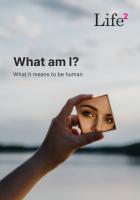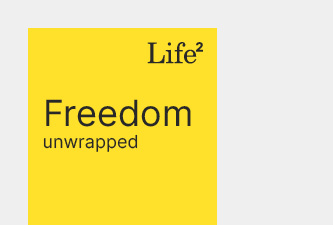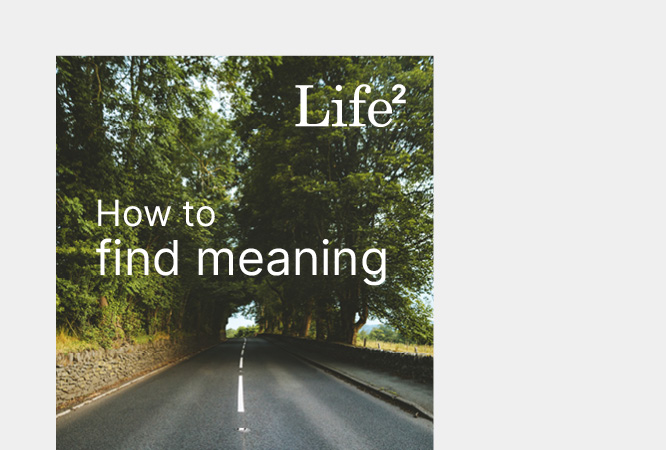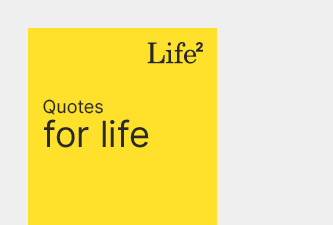
What am I?
Written by Richard Docwra
You may not have asked this question before, as the answer may seem obvious. But in this booklet, we will take you on a fascinating journey to explore what it means to be human.
We’ll present some insights on how human beings think and behave that could change the way you think about yourself – and other people. We will even consider whether the thing you think of as ‘yourself’ actually exists! Join us on this journey – and learn some surprising things that could enhance your life.
This publication is an extract from the book ‘Life – and how to think about it’ by Richard Docwra.
What am I?
Introduction
In your life to date, you may not have asked yourself ‘What am I?’. This may be because it seems a pointless question - most of us hold it as completely self-evident that we are human beings, that I am ‘me’ and that the matter needs no further investigation.
But if we dig further into the question of what exactly we are we can gain some very useful self-awareness of how human beings think and behave in particular ways. If we are open-minded enough to accept that we are animals, subject to particular tendencies of thought and behaviour, and can start to understand these tendencies, we can use it to help us lead better informed, more compassionate and more fulfilled lives, as well as build better societies.
In this booklet we will start to build up a picture of the type of creature you are - how you think, how you behave and what your limitations are. We also consider what this thing is that we call ‘me’ - is there really such a thing as ‘me’? This is a less abstract and far more important question than you might think - and exploring it can also really enhance our lives!
What type of creature am I?
You are a human being - a member of the species homo sapiens.
“Human beings are anatomically similar and related to the great apes (orangutans, gorillas, chimpanzees, and bonobos) but are distinguished by a more highly developed brain and a resultant capacity for articulate speech and abstract reasoning.”[1]
Even this short description, and the illustration (above) of human beings standing alongside our ancestors should give us pause for thought. We are animals. Not a supreme, independent being that has simply appeared on this planet out of nowhere but part of a lineage of the great apes that has evolved over millions of years - and that ultimately shares the same single common ancestor as every other piece of life on Earth. And just because we are currently at the far end of the evolutionary line in this picture doesn’t mean this is the end of the story - the chances are that other species will evolve from us in the future.
We have explored in earlier chapters (of the book 'Life - and how to think about it' by Richard Docwra) how human beings have developed our ideas, knowledge and societies over 200,000 years to become the creatures we are now. But ‘the creatures we are now’ are not that different to the creatures we were 500, 1,000 or 5,000 years ago. We’re still subject to many of the same behavioural tendencies, blind spots in thinking and limits to our perspective that we always were. We often don’t see this fact though, as it is obscured by the technological developments and complex societies that we’ve built around us. We think we’ve overcome ourselves and our nature, but we have not - we are still human beings. So what are human beings like?
What are human beings like?
It is a daunting task to try to characterise human beings as an animal in a general way, in a few sentences. We are complex creatures with complex brains and behaviours, and attempting to make blanket judgements that apply to all 7.7 billion of these creatures is likely to end in a description that’s either too general or wildly inaccurate.
So we’ll focus on a few common traits that can affect how we think and behave, in order to illustrate how far away we are from the ‘rational calculating machines’ with complete free will that many of us think we are.
Each of us tends to think that we behave in deliberate, rational ways, our actions driven by conclusions that we’ve reached for ourselves through rational, calculated thinking. The latest research in psychology, neuroscience and other disciplines is however unearthing a rather different picture - that much of our thinking is instinctive rather than rational, and that we are prone to a range of cognitive biases. Below are a small selection of points from this research just to give some examples of how our assumptions about how we think are wrong.
1. There is a limit to what we can process at once
Our attention is a finite resource - we can only give a limited amount of it at one time. To quote one of the leading experts in cognitive psychology, Daniel Kahneman, “it is the mark of effortful [mental] activities that they interfere with each other, which is why it is difficult or impossible to conduct several at once. You could not compute the product of 17 x 24 while making a left turn into dense traffic, and you certainly should not try. You can do several things at once, but only if they are easy and undemanding.”[2]
This finding contradicts many people’s beliefs about their own mental capabilities - we all believe we can ‘multi-task’ - and perhaps we can in very simple activities. But we probably overestimate our capacity for doing this, and could improve our lives (and road safety) by just focussing on one mentally effortful activity at a time - from asking for silence when we are driving through to focussing on one task at a time when we are working.
2. Value is relative
Have you ever found yourself feeling pleased with something you have gained - such as a pay rise - but then noticed your pleasure turning to anger or resentment when you realised that other people had received a better pay rise than you?
If so, it’s not surprising, as evidence suggests that our relative status compared to others is a critical factor we use to judge our happiness, rather than what we actually have ourselves. This can be an impediment to our mental well-being, as we may in reality have enough of what we need or want, but feel dissatisfied due to others having more relative to us.
The broader point is that “Humans do not make judgements in absolute values but rather in relative terms.”[2] This applies not just when we compare ourselves to other people, but in most situations - for example, when we have a choice of three price points in buying a product we will tend to choose the middle one, as we are trying to evaluate the costs and benefits of different options so we can arrive at a conclusion as to the value of each.
This insight on relative value is already being widely applied by influencers the world over. Advertisers try to manipulate us into buying products by asking us to imagine how they will boost our status against other people, and retailers often deliberately add a particularly high priced item in a list of three choices to encourage you to buy the middle priced item (and thus spend more than if you’d been left alone to buy the cheapest one).
Understanding this tendency, and then accounting for it in our thinking, can help us to live more satisfied lives, as well as make us less open to manipulation.
3. We are programmed to conform
As psychologist Bruce Hood notes, “Our need to conform is a powerful force that shapes us and literally changes the way we think.”[3] In other words, there is a physical reaction in regions of the brain when our views differ from those of the consensus.
We are even willing to override the judgements of our senses in order to conform, as was proved by an experiment by psychologist Solomon Asch where he asked people to compare the lengths of different drawn lines and found that people were prepared to give what was obviously the wrong answer in order to conform to the group consensus and avoid being ostracized.
This tendency isn’t confined to occasions when we are in the direct presence of a group - it also shapes our behaviour and thinking when away from the group. So, the group has the power to change the views, behaviour and even the perceptions of the individual.
This is borne out by experiments such as the notorious studies conducted by Stanley Milgram at Yale University in the early 1960’s, in which ordinary people were prepared to administer a seemingly fatal electric shock to someone, simply because of pressure from an authority figure.[3]
This propensity for conformity can have some positive implications for our behaviour. For example, it can encourage us to moderate our behaviour when part of a group so that we follow rules and avoid unnecessary conflict. However, it doesn’t take much imagination to see the potentially terrible consequences of this tendency towards conformity. It can make people who think of themselves as good behave in bad ways. Even at a less extreme level, it can lead to behaviour and thinking that takes us away from what we would do if we could step back from the situation in which we’re being influenced and think about it in a more reflective way.
So, it is good to be aware of this tendency in ourselves and challenge it when it’s producing behaviour that conflicts with our considered values and aims.
The effects that this tendency to conform has on our behaviour are more moderate than this most of the time. It is however commonly involved in influencing our behaviour in a range of situations every day in our lives - from making it hard for us to speak up when our views differ from the rest of a group, through to influencing the way some of us dress - following the trends of a group that we are involved in.
4. We can be good or bad - depending on our environment
Following on from the previous point, we would all like to think we are naturally good, and that we are in control of our own behaviour through rational thought, but this does not seem to be the case. Evidence from a range of (often quite shocking) experiments suggests that we are capable of acts of great cruelty if the conditions allow or encourage them.
One infamous example of this is the 1971 Stanford University Prison Experiment in which psychologist Phil Zimbardo simulated a prison setup, using student volunteers in the roles of guards and inmates. Zimbardo found that, by setting up an authoritarian scenario, the students in the guard roles ended up committing acts of cruelty and creating suffering for those in the prisoner roles, even though everyone knew that it was just an experiment and not real.
These experiments show that we are not in control of our behaviour in the way that we think, and that “the situations we can find ourselves in and the influence of those around us determine how we behave and treat others.”[4]
These are just a few examples of some of the fascinating insights we are now gaining about how human beings work. We are still relatively early in our knowledge in neuroscience and psychology, but in recent decades we have made profound and important new discoveries that are transforming our understanding of human thinking and behaviour. Many of them overturn some of the common assumptions we’ve held about our species.
The implications of these insights (and others that have been uncovered by researchers in recent decades) are profound - not just for us but for society at large.
Just as one example, we are more easily influenced by other people than we might think - and this could affect a wide range of ideas and behaviours we have, including the healthiness of our lifestyles, the values we adopt, how we treat other people, whether we decide to speak up against injustice and many other important things.
Another implication of these insights is that human beings are neither intrinsically ‘good’ or ‘bad’, but their behaviour can be shaped by a variety of factors - both internal characteristics and external influences. This suggests that we should consider our human tendencies and traits when we develop political policies or review what a ‘good society’ looks like.
For example, during the coronavirus crisis, governments in Australia and New Zealand recognised that people have the tendency to be too optimistic, so they made their messaging about coronavirus particularly strong. As Daniel Kahneman notes, “Although Humans are not irrational, they often need help to make more accurate judgements and better decisions, and in some cases policies and institutions can provide that help.”[5]
We should also ensure we build a society in which people’s natural traits and ‘blind spots’ can’t be exploited for negative ends by people. This might include banning manipulative advertising, educating children about how we think as human beings and putting more checks and balances in political systems to prevent people’s tendency for conformity from being exploited for negative means.
These simple examples alone suggest that it’s critical for us, both as individuals and a species to learn this ‘species self awareness’ - to understand how we think, and apply it to how we live our lives. However, most people have no real conception of how we think and operate as human beings. This stuff isn’t prioritised in our education system in any meaningful way.
Also, even within the group of people that do have this conception, many think it doesn’t apply to them - that somehow they are a special case because they don’t ‘feel’ these things happening to them - for example, being influenced by group behaviour. A psychology professor reported to me that, having reviewed Milgram’s famous experiments outlined earlier with his students, he asked them how they thought they would have reacted in a similar situation. Most of them reported that they would not have administered a shock - which flies in the face of the evidence they had just been taught!
So, a key conclusion here is that it would make our own lives and societies better if we ensured that everyone had a better understanding of our basic traits as human beings, and had the opportunity to consider how we should live our lives and build our societies in the light of this. Perhaps we need to adopt the following principles:
- We should try to live our own lives with greater awareness of the real tendencies and limits to our thinking we have as human beings, as this will help us lead better, kinder and more independent lives.
- We should find ways to educate other people (especially children) about the reality of how we think and behave, for the same reasons as above.
- We need to be much more careful about the values, ideas and culture we are building in society generally, in order to ensure that these encourage prosocial, compassionate and civilised behaviour, rather than the opposite. For example, giving greater status to caring for others than building extreme wealth.
It’s important to note that this does not mean that these tendencies and traits are weaknesses of human beings - they are simply how we are. People who describe them as ‘weaknesses’ - or human beings as ‘flawed’ - would be failing to acknowledge the creatures that we actually are, and would be comparing us to an idealised and unrealistic vision of humans that doesn’t exist but that they’ve made up in their heads.
Action - apply your self-knowledge to your life
Reflect on the points above about our nature and basic traits as human beings. Do they change the way you think about yourself and other people? Reflect, and write a list of ways you could change aspects of the way you think or behave, to improve your life in the light of these insights. If you have time, also consider how society could be improved in the light of them.
Is there really a ‘me’?
If you found that the previous section made you reassess who you are, this one may send you over the edge! What if you discovered there was actually no ‘you’ to start with?
One of the most fascinating topics in psychology, philosophy and neurology is the idea of ‘the self’ - the centre of the being that I describe as ‘me’. Most people would argue that we are more than just our bodies - that there is an individual that occupies my body that I describe as ‘me’.
When I wake up in the morning, I have a strong, overwhelming feeling of being ‘me’. It is me yawning, and me planning my day or reflecting with anxiety about what someone said about me last night. I feel I am a conscious individual, with my own set of experiences and thoughts.
But psychologists suggest that this idea we have of a solid, consistent self is an illusion - another useful trick that the brain performs in order to help us bring together our experiences and ideas into a meaningful narrative over our lifetime, rather than just having an endless jumble of dissociated thoughts. It is also “faster, more economic and more efficient to treat others as a self rather than as an extended collection of past histories, hidden agendas, unresolved conflicts and ulterior motives. Treating humans as selves optimizes our interactions. We fall in love and hate individuals, not collections.”[6]
Imagine instead (correctly) that there is no central thing that is ‘you’.
Yes, there is a distinct physical body in which my brain lives that I, and other people, can identify as Richard Docwra. But this does not mean that there is something called ‘me’ or a central ‘self’ inhabiting my brain.
It might well feel that there is but that’s because our brain is tricking us into thinking this. Instead imagine many layers of memories, feelings, experiences and information that have all built up in your body’s brain. The feeling of pain that ‘you’ experience when hurting yourself in a football tackle. The memory of scoring a goal. The feeling of the pleasant rush of chemicals released in your brain when you win the game. All these layers of information, memories and experience help to give us this false sense of a real, central ‘self’.
In other words, “you only exist as a pattern made up of all the other things in your life that shape you. If you take each away, ‘you’ would eventually cease to exist.”[7]
But this doesn’t make our sense of self feel any less real. As Bruce Hood again notes, “the brain hallucinates the experience of ‘you’ by stimulating its own neural circuits to create that impression. It may be an illusion but it is real as far as the brain is concerned.”[8]
Our illusion of having a real ‘self’ is backed up throughout our lives by the messages we receive from others around us, even though it doesn’t really exist. The everyday language we use and the way we relate to each other assumes a self (e.g. ‘what are your plans for this evening?’) and sometimes these messages are directed at our physical self (e.g. the congratulations ‘you’ receive when you score a goal) - but all help to support the illusion of a mental ‘self’.
There’s no problem with the fact that we use this self illusion - it’s just one of many ways our brains construct models of the external world in order to help us survive and achieve our goals. But it’s fascinating to explore these things and realise that our lives aren’t always what they seem!
Conclusions
In this booklet we have only taken a very brief journey into what it’s like to be a human being, but even this short introduction to the subject gives us some insights that can completely change the way we see ourselves.
We are not the ‘rational calculating machines’ that most people still think we are. Instead, insights from neurology, psychology and other disciplines over recent decades show that we are complex creatures that have evolved to flourish in a certain environment. We are subject to a range of behavioural short cuts and simplifications that enable us to make sense of an incredibly complex world, and to thrive in this world. Whilst they are incredibly useful, these traits of thinking can also however act as limitations and vulnerabilities in certain areas of our lives – from the tendency to conform to social norms through to a willingness to accept authority.
Many of the ideas and systems that surround us in the modern world – from the economic principles that govern us to the way we educate our children – are still based on an outdated picture of human beings, and how we function.
It could improve both our society and quality of life as individuals in a wide range of ways if we all adopted a more realistic, modern view of how human beings really think and behave.
Copyright Life Squared 2021
As ever, this guide is available to download for FREE as part of our aim to give everyone the tools they need to navigate life in a thoughtful way. Please support our work by becoming a member or donating if you can. Thank you!
[1] https://www.britannica.com/topic/human-being
[2] Kahneman, Daniel - Thinking - Fast and Slow, Penguin, London, p.23
[3] Hood, Bruce - The Self Illusion, Constable, London 2012, p.146
[4] Hood, Bruce - The Self Illusion, Constable, London 2012, p.145
[5] Kahneman, Daniel - Thinking - Fast and Slow, Penguin, London, p.411
[6] The Self Illusion, Bruce Hood, Constable, London 2012, p.214
[7] The Self Illusion, Bruce Hood, Constable, London 2012, p.215
[8] The Self Illusion, Bruce Hood, Constable, London 2012, p.216
You May Also Like

Freedom unwrapped
How the idea of 'freedom' can be manipulated by people.

How to find meaning
This guide explores the meaning of life - what is it, how can we find meaning and what are the obstacles to doing so?

Quotes for life
Some invaluable insights and ideas from famous (and less known) thinkers.


